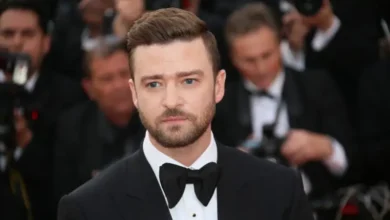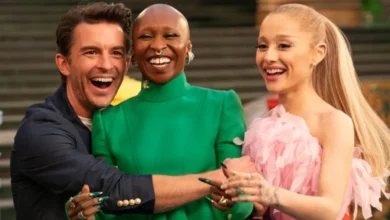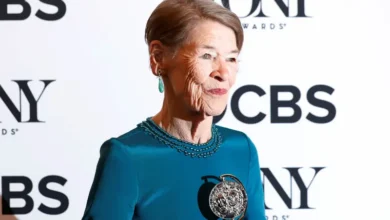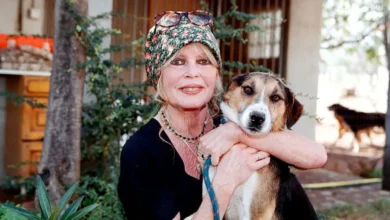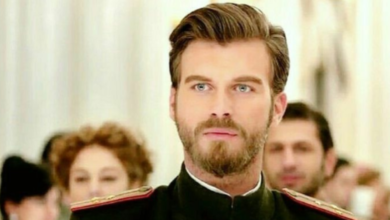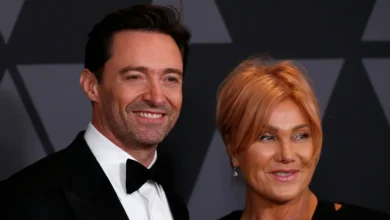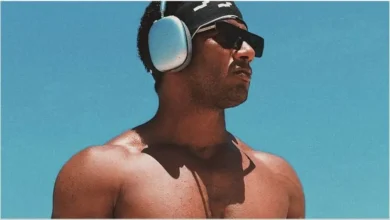Saudi Arabia women’s football chief on exciting evolution and World Cup ambitions
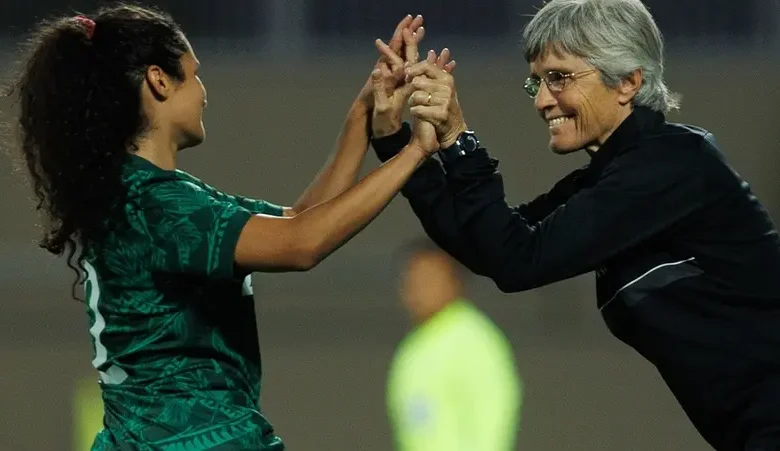
Less than three years ago, Saudi Arabia played its first international women’s football match against the Seychelles. Since that 2-0 friendly win in February 2022, the sport’s development has accelerated at an electrifying pace – with new coaches, teams, academies and leagues emerging to create a rich football ecosystem.
Unsurprisingly, given the rapid rate of change, Saudi Football Federation (SAFF) women’s technical director Monika Staab – an experienced German coach appointed in 2021 – rarely has a chance to stop and reflect on how far the Kingdom has come.
But with the support of Staab and under the leadership of SAFF Vice President Lamia Bahaian, Saudi Arabia has achieved as much progress in three years as many nations have achieved in decades.
“I’ve worked around the world for 18 years in 90 countries, and I have never seen a federation working and supporting women’s football more than here in Saudi Arabia,” Staab tells Al Arabiya English.
“I think having been part of this from the start has really helped me understand the different level we are at now. It’s amazing how much progress has been made.
“The way the country’s leadership has taken women’s football seriously has helped it be quickly accepted in society, and we are implementing everything possible for these girls, especially at a young age, to play the game.”
The number of clubs in Saudi Arabia has tripled in three years and at the elite level. The Saudi Women’s Premier League is now a professional competition in its third season, attracting international players to join teams across the Kingdom – from Dammam to Jeddah, Riyadh to Medina.
“To me, it is already a significant achievement that we have players asking other players and agents, ‘How is it in Saudi Arabia?’ Every day, I get these types of messages myself about playing in the Kingdom.
“Now we have top foreigners from all over the world, the level is getting higher and higher, and these players are helping and guiding our Saudi players too; it has been brilliant to see.”
Staab believes the parallel recent growth of the men’s Saudi Pro League into a global product has aided the development of the women’s game.
“Of course, having Cristiano Ronaldo with his millions of fans and followers has had a great impact,” she explains. “Every player who is willing to come to Saudi to play football helps change perceptions.
“It started with the men, but we have seen how it has shifted into women’s football, too. We have seen [Nigeria international] Ashleigh Plumptre coming to Al Ittihad, Morocco’s Ibtissam Jraïdi at Al Ahli and Clara Lumvanga from Tanzania[at Al Nassr].
“They want to come because they feel comfortable, and they want to contribute to a league, which, like the men’s, is improving all the time.”
With the top domestic league and its feeder divisions flourishing, the Saudi national team has also witnessed major gains.
Now coached by Spaniard Lluis Cortes, who guided Barcelona Femení to the UEFA Women’s Champions League title in 2021, Saudi Arabia played in its first major international competition – the WAFF Championship – earlier this year.
“I think it is really important to remember that even just three years ago, a lot of these Saudi players had never played 11-a-side at a competitive level,” Staab says. “They may have played in their communities or informally but not in an organized environment. This is a huge step.
“Now we have Lluis Cortes too, and he has brought such professionalism with his staff. He has a fitness coach, a video analyst, and a goalkeeper coach. When I first came here, I was alone!
“He knows women’s football; he knows how to develop players, and he is happy to develop them. You can see the positive impact he has had already. We hope that our new talents coming through – from 15 years old – can be educated in a way that will see them develop faster, with improved tactical game awareness and resilience.”
Grassroots
Staab has been impressed with how swiftly the women’s football infrastructure has been implemented in the Kingdom, including the launch of six academies nationwide and a comprehensive school competition that more than 80,000 girls have enjoyed.
The German stresses that the growth in Saudi Arabia has not just been about investment, but intent.
“When you look at where we are now, it is crazy – amazing progress. We are there because the federation and the president have given women’s football the platform – with the same environment and the same conditions.
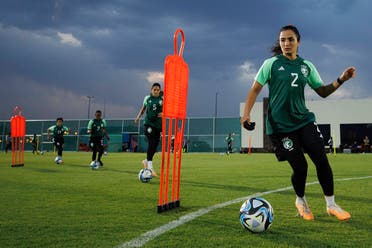
“We have the same hotel as the men’s national team. We didn’t have this in Germany. You have the same field as the men’s team – a perfect field – and the same daily allowance. A lot of countries around the world, including many in Europe, are fighting for this but here, every national team player is getting the same.
“I don’t believe it’s just about the money though. Of course, Saudi Arabia has oil in their soil, but the country still has to choose where to invest.
“What has happened in three years in women’s football could not have happened without investment, but it also couldn’t have happened without the passion, commitment, belief and engagement here.”
Staab has been parachuted into many national federations over the years to set up strong women’s football foundations. Usually, her tenures last a couple of years but she has stayed in Saudi Arabia because she feels the nation is on the verge of something special.
“There is a reason I am still here in Saudi Arabia after three years because the growth is so gratifying. I am living in Riyadh and enjoying these wonderful people, humble people and their passion for making these changes.
“Of course, Saudi Arabia would like to go to the World Cup, and their dream is even to win it. But this takes time to develop and those in power know that this strong foundation is essential in order to have sustainable growth.”
A new U-17 league has recently been created in the Kingdom, with Staab admitting her “attention is always with the younger generation.”
Coach education has exploded, too, with a starting point of zero professionally qualified coaches rising to two A-License, 28 B-License, 185 C-License and more than 1,000 D-License and teachers now able to coach girls’ football.
And for Staab, it is this extensive network of opportunities at the grassroots level that she feels is the most critical aspect of Saudi Arabia’s football development.
“Sports was not a priority for any schools in Saudi Arabia – boys or girls – before, but this has changed. Of course, there is still some prejudice for girls to overcome and we still have to convince some of the parents that it’s okay for them to play football. But this is the same in traditionally conservative cultures across the world.
“However, the big celebration here is that for girls who haven’t had a sporting platform for so many years, it is remarkable that parents can now say, ‘My daughter could become a professional footballer.’ If they are committed enough, they can live a life they have dreamed of.
“For our national team players who are 28, 29, 30 years old, it is paradise that they have found recognition for the first time. Every Women’s Premier League game is on TV and broadcast to millions of people. They have contracts, they’re earning money, and they’re understandably very proud of that.
“The rocket has been moving so fast and I’m not sure if it is possible to continue in this way and with such speed. But with the right foundation now in place and an acceptance that it’s a longer journey we are on together, Saudi Arabia can have a top team in the future.”
